Anesthesia injection before tooth extraction is an important step to help reduce pain and discomfort for the patient, and also help the tooth extraction process go faster and smoother. However, some people still wonder whether anesthetic for tooth extraction causes any side effects. In the following article, BIK International Dental Clinic will answer this question to help you understand better.
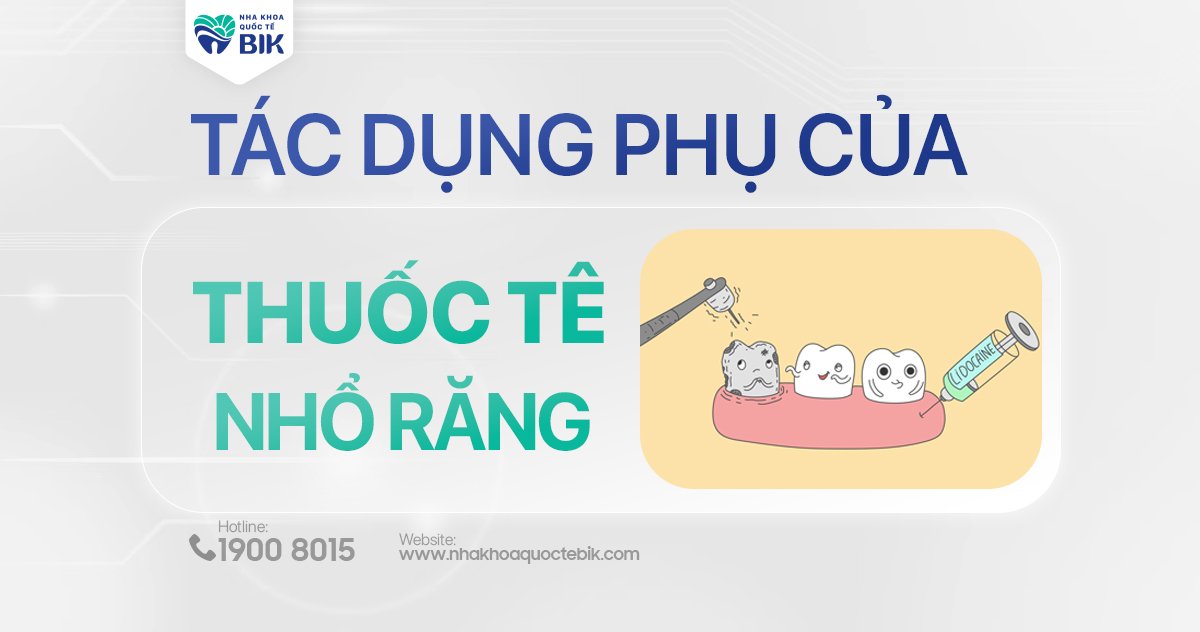
Why do we need anesthetics when extracting teeth?
Before tooth extraction, the patient will be injected with anesthetic into the gum area of the tooth to be extracted with an appropriate dose to reduce pain and discomfort.
Anesthetics work by reducing the sensation of pain in the area where they are injected. This means that anesthetics only create temporary numbness, providing pain relief for a certain period of time without affecting consciousness or body function.
Dental anesthetics are effective quickly and are then eliminated from the body, so you can rest assured when using them.
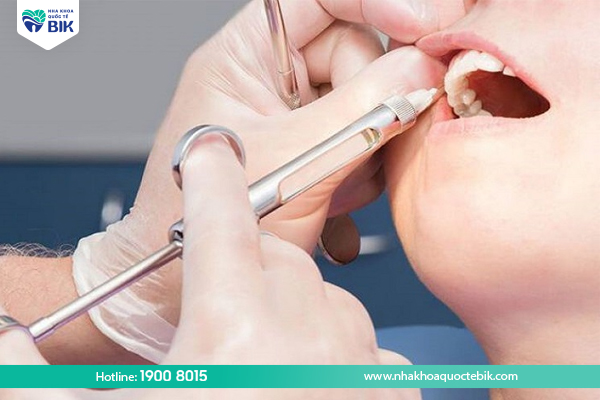
Does anesthetic injections hurt?
Tooth extraction is the process of removing a damaged tooth from the jawbone, and to ensure that this process takes place without causing pain or discomfort to the patient, doctors often apply anesthetic injections. Before injecting anesthetic, doctors often apply or spray a small amount of anesthetic onto the area of the tooth that needs to be extracted.
Anesthetics are designed to inhibit the sensory nerves in the area where the tooth comes into contact with the drug. With the doctor’s anesthesia injection technique, the patient will not feel pain or discomfort during the tooth extraction process. The main purpose is to help the patient go through the tooth extraction process comfortably and without difficulty from the feeling of pain.
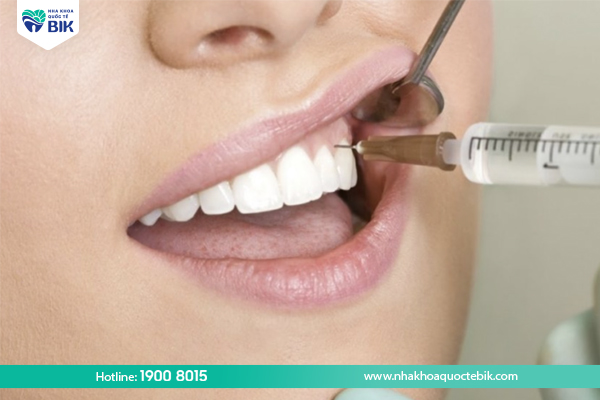
How long does it take for the anesthetic to wear off after tooth extraction?
The duration of the anesthetic from the time of anesthesia until it wears off usually lasts from 30 to 60 minutes. When the anesthetic wears off, the patient may feel slight pain at the site of the extracted tooth. In this case, the doctor will prescribe pain medication and instruct the patient to apply ice to the outside of the lips or cheeks at the site of the extracted tooth to relieve pain.
For cases of extraction of loose, infected or severely decayed baby teeth, the doctor will inject anesthetic before extraction and the anesthetic will take effect for about 10 – 20 minutes. For cases of permanent teeth that are more difficult to extract, the doctor will use general anesthesia and the effect of the drug will last about 30 minutes before completely disappearing.
When extracting wisdom teeth, molars or impacted teeth, the duration of the anesthetic effect is usually longer, usually from 60 to 90 minutes. Depending on the patient’s constitution and oral condition, the doctor will adjust the appropriate dose of anesthetic.
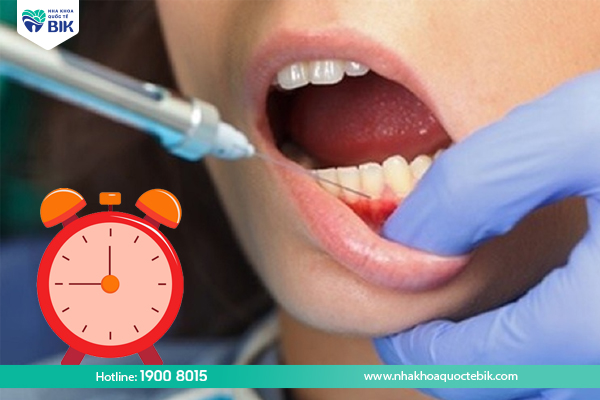
Side effects of anesthetic after tooth extraction
The process of injecting anesthetic does not significantly affect the nervous system and will lose its effectiveness after a certain period of time. However, there are cases where the patient has an allergic reaction to the anesthetic, which can lead to dangerous side effects such as:…
Anesthetic shock
Anesthetic shock is a very rare phenomenon when injecting anesthetic after tooth extraction. Most cases of anesthetic shock occur because the patient is allergic to the drug.
This is an unavoidable condition because the cause is not due to the doctor’s technique or the quality of the drug, but because the patient’s body reacts to the ingredients of the drug.
To prevent anesthetic shock after tooth extraction, it is important to choose a reputable dental facility with a specialized, experienced doctor who can handle and resolve this situation promptly.
Swelling and pain after anesthetic injection
Swelling and pain after the anesthetic injection may be due to the medicine being too cold, and the doctor being unprofessional may prick the nerve or the area of inflammation.
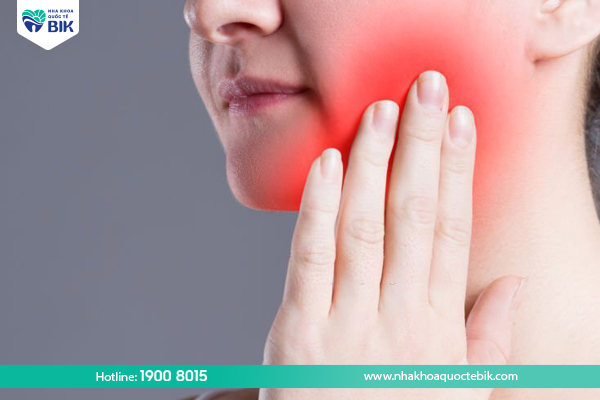
Bleeding
When the dentist does not perform the anesthetic injection properly, it can lead to the needle entering the blood vessel and causing bleeding.
If the needle enters a vein, blood will flow after the needle is removed. In the case of a needle entering an artery, blood will flow out through the syringe when the medicine is injected. When these situations occur, the doctor needs to intervene immediately to control the bleeding and avoid excessive blood loss.
Fainting
This can occur due to low blood pressure or cerebral ischemia, especially when the patient has a history of heart disease. The cause is usually due to the effect on the sympathetic nerve.
These are only some very rare cases. Before tooth extraction, you should discuss with your doctor to understand your situation and the tooth extraction process.

Notes when injecting anesthetics for tooth extraction
To avoid complications that may occur after anesthetic injection, you need to pay attention to the following:
Before injecting anesthetics and tooth extraction
- Avoid tooth extraction if not recommended by a dentist, including cases such as acute infections, high blood pressure, pregnant women or during menstruation.
- Regularly check and inform your dentist about your health status such as cardiovascular disease, diabetes, etc.
- Choose a reputable and quality dental clinic to avoid possible unwanted risks.
- Keep your mind relaxed, avoid stress and fatigue to avoid affecting the process of injecting anesthetic and tooth extraction.
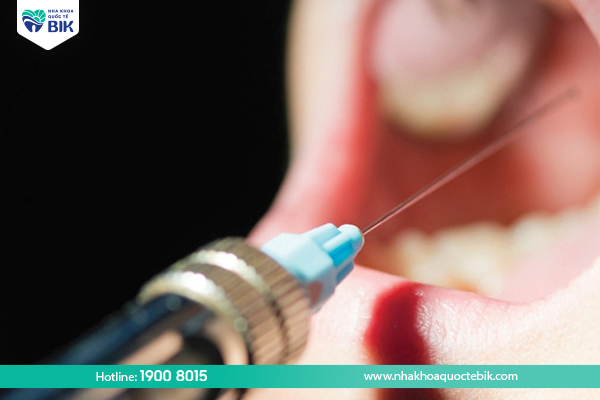
After tooth extraction
- Closely monitor your health to promptly detect complications or abnormal signs.
- Take enough time to rest, avoid overexertion.
- Prioritize eating foods soft, easy to digest foods such as porridge, liquid soup. Avoid eating tough, hard or too hot foods.
- See your doctor immediately if there are any unusual signs.
Although the side effects of anesthesia when extracting teeth are not common and rarely occur, you still need to be careful. It is best to choose a reputable and quality dental clinic like BIK International Dental to ensure that the anesthesia injection when extracting teeth does not cause side effects and is safe for your health.


















